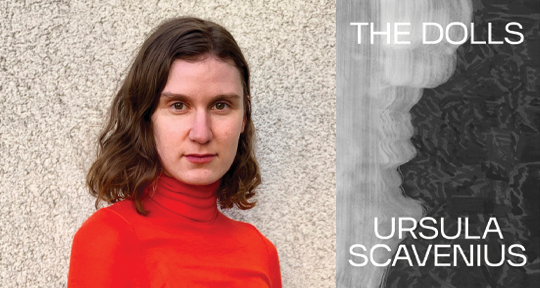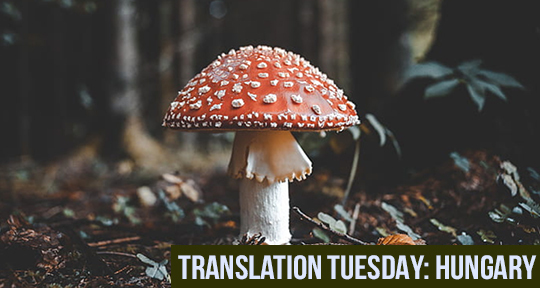The Dolls by Ursula Scavenius, translated from the Danish by Jennifer Russell, Lolli Editions, 2021
Ursula Scavenius has created an inexplicable environment in The Dolls, a collection of four stories that render the common traditions of narrative into cerebral mystery. Perhaps our characters are in Denmark, but what iteration of Denmark is it? She does not seem to call upon any particular reality or time period in which to place her characters; even the mention of actual years or eras, be they 1888 or 1999, don’t seem to hold much meaning. Amidst this ambiguity, you might say something is rotten in the state of Denmark. The epigraph of the text, deftly translated from the Danish by Jennifer Russell, reads: “I’ll tell the story, even if no one is listening.” While not necessarily a unique sentiment, it aptly sets up a book that comes to us in English translation, which has found itself a new set of readers who are ready to listen.
Fittingly, this book is part of Lolli’s New Scandinavian Literature series—and it does seem to live within that hint of reinvention, avoiding any stereotypically Danish or Scandinavian elements. There’s no hygge—that adulated brand of upper-middle-class coziness—here: everyone is decidedly uncomfortable. Nor can they be categorized under the beloved genre of Nordic noir—no outright crime exists in these stories. Instead, we have paranoia, dread, perhaps some doomsday prep, but no hardboiled investigation or detective work. Although Scavenius may not explicitly belong to the traditions of Scandinavian literature, you could thread her particular type of psychological penetration and sense of displacement with the likes of Clarice Lispector, Wuthering Heights, perhaps Ghost Wall by Sarah Moss or Amparo Dávila’s The Houseguest and Other Stories (translated by Matthew Gleeson and Audrey Harris), taking part in a global narrativization of women who find themselves in archaic or alternative lifestyles, or otherwise alone—either by their own accord or against their will. A timeless situation.


